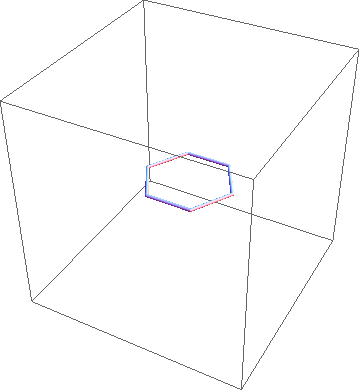Here is one approach. Start with a regular $n$-gon in the $xy$-plane with unit edge lengths; say its vertices are $v_i$, $i=0,\ldots,n-1$. Now iterate the following process.
Select a random diagonal, $v_i v_j$. Rotate the chain $v_i, v_{i+1}, \ldots, v_j$ (indices appropriately mod $n$) as a rigid unit about the line through $v_i v_j$, by a random angle $\theta \in [0,2\pi)$.
Continue until there is sufficient "mixing."
I illustrate the process below for 30 iterations appliesapplied to a hexagon.
HexVecsAnim http://cs.smith.edu/~orourke/MathOverflow/HexVecs.gif
(Apologies for the scale—the chain wanders away from its initial locaion.)
